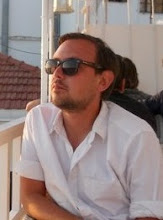
"Everyone's blessed with one special thing," 17-year old Eddie Adams (Mark Wahlberg) says to his girlfriend early in Boogie Nights (Paul Thomas Anderson, 1997). His "special thing," which he uses to escape the dank, sorrowful confines of his Torrance, Calif., home, is his penis.
Set in the San Fernando Valley in 1977, Boogie Nights is a film about disco and debauchery on the pornography scene, where Eddie, who quickly assumes the nom de porn Dirk Diggler — a name that suggests phalluses and, with its crusty alliteration, Eddie's startling immaturity — rises to stardom by way of his massive, um, manhood.
But for someone who jacks off for gay men in the back room of a night club for a measly $10, Eddie is about as unworldly as they come. He cringes at the first sip of tequila at a party; he tiptoes around costar Amber Waves (the amazing Julianne Moore), asking her if it's alright to make their first onscreen fuck "sexy." "Look at this jackknife," he yells to his buddy Reed Rothchild (John C. Reilly) as he leaps off the diving board: this is a teenager with little sense of what he's getting into, and none of the wherewithal to get out.
In some ways, though, Eddie's story plays second fiddle to Anderson's lovingly crafted 1970s California. With an almost obsessive attention to detail, he gets the seediness of disco culture (at least as Hollywood sees it) exactly right: the painkillers spilled onto the tacky oak nightstand, the bad coke passed around at parties, the grotesque colors that call to mind overripe fruit.
Everything, even porn king Jack Horner's spacious ranch house, looks tired, as though the entire culture were settling down to die. Amid the Altmanesque chaos of Anderson's sprawling cast and virtuosic tracking shots — including the opening of the film, a three-minute shot that introduces the characters as they prowl the dim corners of their favorite club, Hot Traxx — there's a sense of breakdown and decay.
Mascara runs, noses bleed, smoke gets in the eyes. There's something off here, something hard to place, something that resembles misery but won't quite admit to it.
That's because the genius of the film is not in its overdose of classic songs, its garish hues or its aimlessly hedonistic atmosphere, but in its deeply wrought sadness. The characters lose sons to divorce, find their wives fucking other men and don't attempt to stop it, endure moments of bitter drunkenness and cowardly silence.
The dissonance between the way things are supposed to be and the way things are is, for these marginal players in the Hollywood game, an irreconcilable break in the flow of happiness. With unlimited sex, money and drugs, how could you not have fun?
The explicitness of the film is, however, not exciting but enervating: decisions of where to come and what position to take have the stultifying banality of bookkeeping or stenography. Porn is work, and the repetition of a familiar task, as in any profession, just seems like more time down the drain.
What Anderson says with this mixture of eroticism and boredom is something about film itself — Boogie Nights, at its heart, is not about sex or the '70s but about the satisfaction derived from watching rather than creating. Despite Jack Horner's dream "to make a film that is true, and right, and dramatic," cinema, for the maker, is about narrative spinning out of control, about the margins upsetting the center of the action. It's about everything caught between the frames, about the long takes that capture the endless variety — the endlessness, period — of this unfathomable culture in which we live.
But film for the viewer, in its integral voyeurism, is really just pornography sanctified: It's about climax, about conclusion, about getting off.
For my take on Paul Thomas Anderson and his film There Will Be Blood, check out my piece in Bright Lights Film Journal.

No comments:
Post a Comment